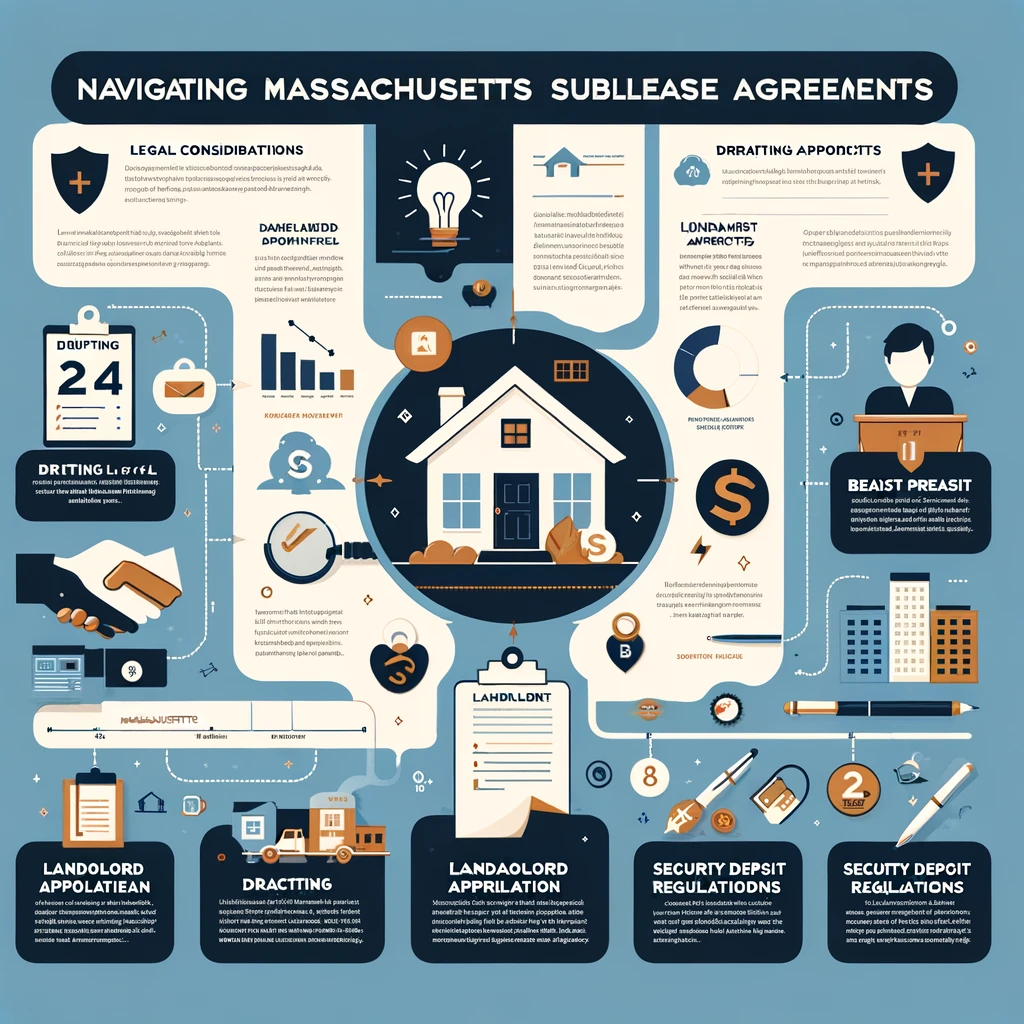Understanding Massachusetts Sublease Agreements: A Comprehensive Guide
In the bustling Commonwealth of Massachusetts, the need for flexible housing solutions is ever-present, especially in major cities like Boston, Cambridge, and Worcester. Subleasing emerges as a pivotal practice, providing tenants the opportunity to sublet their rented space under certain conditions. This detailed guide delves into the intricacies of Massachusetts sublease agreements, ensuring tenants and subtenants navigate their arrangements with confidence and legal backing.

What is a Sublease Agreement?
A sublease agreement in Massachusetts is a legally binding document that allows an original tenant (sublessor) to rent out their leased premises, or a portion thereof, to a new tenant (sublessee). This arrangement is particularly common among students, professionals on temporary assignments, and individuals seeking short-term housing options. The Massachusetts government outlines specific regulations governing subleasing to protect all parties involved, ensuring the agreement complies with state law.
Key Components of a Massachusetts Sublease Agreement
Parties and Premises Identification: Clearly state the names of the sublessor and sublessee, along with a detailed description of the premises being subleased.
Term of Sublease: Specify the start and end dates of the sublease period, ensuring it does not exceed the term of the original lease.
Rent Details: Outline the rent amount, due dates, and payment method. It's crucial to detail who is responsible for utilities and other expenses.
Security Deposit: Specify the amount, terms, and conditions for the security deposit, adhering to Massachusetts' security deposit laws.
Original Lease Reference: The sublease should acknowledge the original lease and stipulate that the sublease agreement is subject to the original lease terms.
Landlord’s Consent: Highlight the requirement for the landlord’s written consent to the sublease, as most leases in Massachusetts require landlord approval before subletting.
Sublessee's Liability and Obligations: Clearly define the sublessee's responsibilities, including adherence to the original lease terms, property maintenance, and noise regulations.
Governing Law: Indicate that the sublease agreement is governed by the laws of the State of Massachusetts.

Create & Review Your Contracts 10x Quality and Ease
Lawyer-level AI handles all your contract needs, with real lawyers providing safeguarding support

Legal Considerations and Requirements
Landlord Approval: Massachusetts law typically requires the original tenant to obtain written consent from the landlord before subleasing. Failure to do so may result in lease termination or legal action.
Adherence to Original Lease Terms: Both the sublessor and sublessee must comply with the terms set forth in the original lease agreement. The sublease cannot confer rights to the sublessee that are contrary to the original lease.
Security Deposit Regulations: The handling of security deposits in Massachusetts is strictly regulated. Sublessors should familiarize themselves with these regulations to avoid legal pitfalls.
Drafting a Massachusetts Sublease Agreement: Best Practices
Clarity and Detail: Ensure the agreement is clear, detailed, and leaves no room for interpretation. Use straightforward language to describe each party's rights and obligations.
Compliance with State Law: Verify that the sublease agreement complies with all relevant Massachusetts statutes and housing regulations. The Mass.gov website is a valuable resource for state-specific legal information.
Inclusion of a Property Inspection Checklist: Incorporate a checklist to document the condition of the property at the time of subleasing. This can prevent disputes over damages.
Signatures: Both the sublessor and sublessee must sign the agreement. It's also advisable to have the landlord sign or initial the agreement to acknowledge their consent.
Conclusion
Navigating the complexities of sublease agreements in Massachusetts requires careful attention to legal details and compliance with state law. Whether you're a student in need of short-term housing or a tenant looking to sublet your space, understanding the intricacies of sublease agreements is crucial. By ensuring your agreement is comprehensive, clear, and compliant, you can foster a positive subleasing experience for all parties involved.
For further information on housing laws and tenant rights in Massachusetts, consider exploring resources offered by educational institutions such as Harvard University's Housing Office or government websites like Mass.gov. These resources can provide authoritative insights and guidance on navigating sublease agreements and other housing-related legal matters in Massachusetts.

